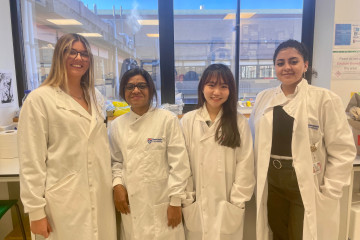PhD Studentship
Efficacy of artificial imprinted antibodies in driving unwarranted immune responses

At a glance
In progress
Award date
January 2022 - January 2025
Grant amount
£90,000
Principal investigator
Dr Shoba Amarnath
Co-investigator(s)
Institute
Newcastle University
R
- Replacement
Read the abstract
View the grant profile on GtR
